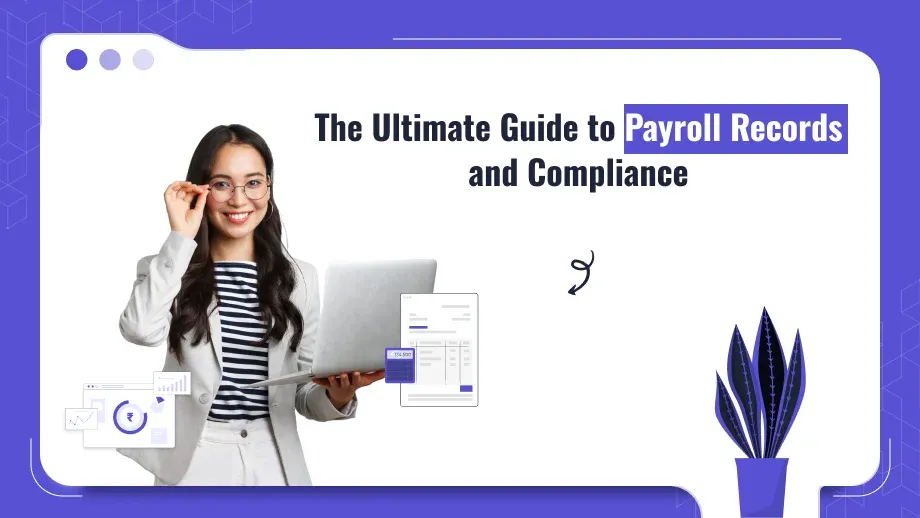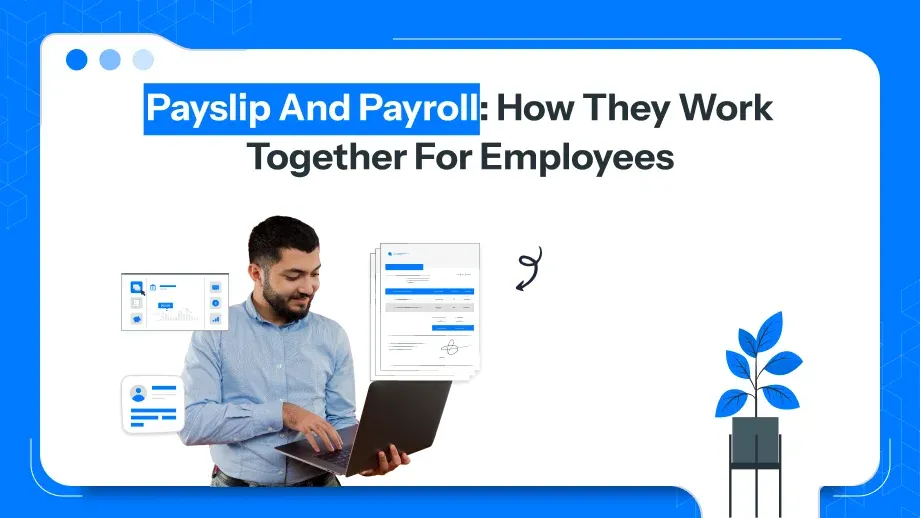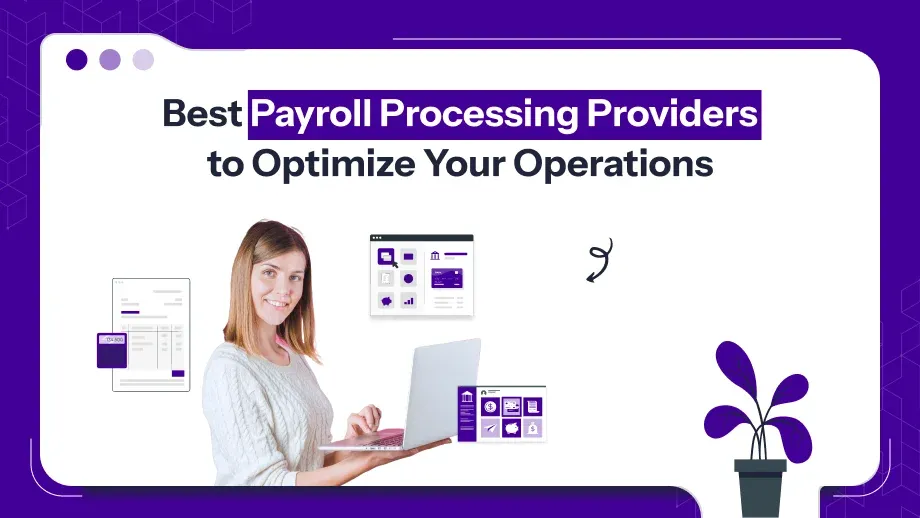It can automate many aspects of payroll management. It calculates deductions, wages and taxes on the basis of the information of employees, creates payslips as well as securely keeps all the data.
Grab a chance to avail 6 Months of Performance Module for FREE
Book a free demo session & learn more about it!
-
Will customized solution for your needs
-
Empowering users with user-friendly features
-
Driving success across diverse industries, everywhere.
Grab a chance to avail 6 Months of Performance Module for FREE
Book a free demo session & learn more about it!
Superworks
Modern HR Workplace
Your Partner in the entire Employee Life Cycle
From recruitment to retirement manage every stage of employee lifecycle with ease.


Seamless onboarding & offboarding
Automated compliance & payroll
Track performance & engagement
The Ultimate Guide to Payroll Records and Compliance
- payroll records
- 9 min read
- October 4, 2024
Payroll documents are much more than an ordinary stack of paper. It is a key component of maintaining your business’s related compliance with the labour law, Paying employees in a timely manner, and ensuring the payroll process is an efficient manner. Maintaining accurate payroll records isn’t easy, particularly due to the many legal requirements required.
Then, why are these payroll records important?
Payroll records are crucial as they help businesses save themselves from tax liability and fines as well as keep track of the employees receive. If you’re not keeping up on your payroll paperwork, it could cost your business and in many ways.
In this detail, the article will cover all the information that you should learn about pay records from knowing the nature of them and when to retain them, to the most effective methods and tools for governing the process.
Also, we’ll show the ways payroll software could make this procedure much simpler. Representatives and managers also are a part of representatives and managers both contribute to the Employee State Insurance program which offers medical disabilities, disability, maternity and many other benefits to employees.
- What Are Payroll Records?
- What are the Legal Requirements for Payroll Recordkeeping?
- What Happens if You Don’t Comply?
- Best Practices for Managing Payroll Records
- The Role of Payroll Software in Recordkeeping
- Audits and Reviews: Ensuring Payroll Record Accuracy
- Why Audits Are Necessary:
- Common Payroll Recordkeeping Mistakes to Avoid
- Conclusion
What Are Payroll Records?
Payroll records details of your business and records about employee earnings and hours of work, deductions as well as taxes. These all records are essential for tracking the payments to employees as well as keeping them in compliance with labour and tax laws.
Common Types of Payroll Records:
- Employee payroll records – Wages, salaries, and bonuses.
- Payroll process records – Timesheets, attendance records, and overtime calculations.
- Payroll pay slips – It is a detailed summary of the employee’s earnings and deductions.
- Tax related documents – forms like W-2s and 1099s that need to be filed with the IRS.
These documents are important for any company, as they ensure workers are properly paid and that taxes are dealt with in a timely manner.
Unlock the Potential of Seamless Payroll Solutions with Superworks!
Empower your payroll processes, streamline operations, and boost productivity! Take the first step towards a more efficient payroll future with Superworks!
What are the Legal Requirements for Payroll Recordkeeping?
One of the most crucial aspects of keeping your payroll records is to ensure they meet the legal requirements. Authorities like the IRS and the Department of Labor set particular rules regarding the time you must keep the records and what type of data should be stored.
Key Legal Requirements:
- Fair Labor Standards Act (FLSA): Requires businesses to maintain certain records for at least 3 years. These include wage data, working hours and the employee’s ID details.
- IRS Regulations: The IRS requires the keeping of payroll tax documents for a minimum of four years. It includes tax withholding forms for income tax and any correspondence related to payroll taxes.
What Happens if You Don’t Comply?
The failure to maintain accurate payroll records could lead to fines or even audits. Incomplete or lost payroll and records could cause problems in tax time or even lawsuits from employees. It’s essential to be on top of all this.
Best Practices for Managing Payroll Records
Effectively managing employee records will help you save time and lower the chance of making mistakes. Below are a few simple guidelines for keeping track of the payroll record and making sure they’re up-to-date and simple to get access to.
1. Go Digital
Store your payroll records electronically whenever possible. Not only does this free up physical space, but it also makes records easier to retrieve and reduces the risk of losing important paperwork. Using HR payroll software can automate this process by securely storing your payroll data in the cloud.
2. Create a Consistent Filing System
Whether working on digital as well as physical documents, using a systematic file system is key. Make sure your records are organized according to the date or name of the employee in order to make them easy to locate when tax audits are scheduled.
3. Back-Up Your Records
If you’re using digital storage, make sure to back up your payroll records regularly. Cloud-based payroll software often includes automatic backup options to ensure nothing is lost.
4. Keep Records Secure
Protect sensitive data by using password-protected systems or encryption. Confidentiality is important for both legal reasons and maintaining employee trust.
The Role of Payroll Software in Recordkeeping
While storing and organizing all documents manually is an issue, it provides an easy solution that streamlines a lot of the procedures. A best payroll system will help you save your time, minimize payroll related errors, and make sure that you are in compliance with the constantly changing regulations surrounding the payroll records.
Benefits of Using Payroll Software:
- Automation of Payroll Processes:
It can automatically calculate wages, deductions, and taxes based on employee information. It can also generate payroll payslips and store them securely for future reference. This eliminates the need for manual calculations and ensures that records are accurate. - Improved Compliance:
Regulations around payroll can be complex and often change. Good payroll software updates regularly to ensure that your system remains compliant with current laws. It will also store the necessary payroll process records required for legal audits, making it easier to provide information when needed. - Easy Access to Payroll Data:
With this software, your records are available at the click of a button. Whether you need to pull up an employee’s work history, tax records, or other payroll data, the software makes this information easily accessible. This is particularly helpful during audits or when addressing employee concerns about their pay. - Time-Saving Features:
Payroll software can significantly reduce the time spent on payroll processing. By automating calculations, filing, and record storage, managers can focus on more important tasks, knowing that their payroll records are being handled efficiently. - Data Security:
Sensitive payroll information must be protected. It offers secure storage and ensures that employees’ information is secure from any data breach. This is an essential feature for businesses that need to protect confidential data from unauthorized access.
Also See: How to Choose the Right Payroll Software for Small Business
Audits and Reviews: Ensuring Payroll Record Accuracy
Audits on the payroll data are essential for ensuring compliance and accuracy. The goal isn’t only to avoid penalty charges, it’s about ensuring you’re paying your employees in a timely manner and that your financial files are properly maintained to ensure tax compliance as well as other requirements of the law.
Why Audits Are Necessary:
Payroll audits are a way to ensure that the records of your payroll processing are accurate and complete. They can also reveal any deviations or mistakes that may occur in payroll calculation and can help avoid more serious issues later on. A typical audit will include reviewing the pay records of employees, reviewing the tax forms for payroll, as well as making sure that the payroll is in that the company is in compliance with wage and hour law.
Steps for Conducting an Internal Payroll Audit:
- Review Payroll your Records for Accuracy:
Begin with a thorough review of all the data which includes employee time, wages as well as deductions and taxes. Verify that these numbers match the amount of money paid to employees as well as your records that you have filed with authorities of the government. - Verify Compliance with Laws:
Check that your payroll practices align with local, state, and federal regulations. Make sure you are keeping records for the required amount of time and that all necessary payroll payslips and tax forms are properly documented. - Use Payroll Software for Audits:
Super Payroll can make the audit process much simpler. The software stores a complete history of your payroll transactions, making it easy to pull up reports and records that are needed for audits. Automated reports can help you spot any discrepancies quickly. - Correct Any Errors Found:
If your audit uncovers mistakes, correct them immediately. This could involve fixing miscalculated wages, adjusting tax filings, or updating missing records. Document any changes you make so you have a clear audit trail for future reference.
By conducting regular audits and leveraging payroll software, businesses can ensure that their payroll is both accurate and compliant.
Common Payroll Recordkeeping Mistakes to Avoid
Even with the best systems in place, mistakes in maintaining payroll records can still happen. Here are some common errors businesses make and how to avoid them.
1. Failing to Keep Records for the Required Time:
The regulations specify the length of time you must keep track of the records of employees, which includes the payroll records. Inadequately keeping records over the proper timeframe may result in fines and sanctions. In order to avoid this, set up a clear timetable for the storage and destruction of files in compliance to requirements.
2. Not Updating Payroll Records Regularly:
It need to be updated consistently. Changes in employee hours, tax rates, or deductions need to be reflected immediately in your payroll process records. A payroll system can help keep everything up to date by automating these changes.
3. Inconsistent Filing Methods:
Whether you use physical records or digital storage, an inconsistent filing method can make it hard to retrieve payroll related data when needed. Organize records by employee, date, or type to ensure they can be easily accessed.
4. Lack of Data Security:
Payroll details contain sensitive data that must be secured. Failure to protect your Payroll records could lead to a breach of data and a loss of confidence in your employees. Always make use of secure systems to save these documents and restrict access to only authorized individuals.
If you recognize these mistakes and recognizing these common mistakes, you can take measures to prevent them from happening and make sure that your payroll and records management is efficient and in compliance.
Conclusion
Achieving accurate and reliable payroll records is essential to any company. These tools ensure that employees are compensated in a timely manner, that taxes are paid in time, and the company is not penalized for late filing. When following the most effective practices like moving to digital, arranging records correctly and making use of payroll software, organizations are able to streamline the payroll process and decrease the risk of non-compliance or errors.
Regularly scheduled audits, coupled with regular record keeping, can help ensure that your payroll information is up-to-date and easy to access. Avoiding common errors and protecting your data, you’ll be able to efficiently keep track of your employee payroll and compliance with the latest regulations.
Also see: payroll process in india
FAQs
How can payroll records be automated with payroll software?
What should I do if payroll records or payslips are lost?
If payroll records are lost or compromised, it's important to act quickly. First, restore the records from a backup, if available. Payroll software with cloud storage, like superworks, can automatically back up records to prevent data loss.
How do you review payroll records accurately?
It is a great idea to check payroll-related documents regularly, at a minimum, each quarter to make sure that the records are accurate and in compliance. Also, conducting an annual review every year can help detect and rectify any issues before they turn into bigger problems.
What records should be kept to comply with payroll regulations?
Companies should maintain a variety of records related to this process, such as employees' identity details as well as hours worked, the amount of bonuses and wages paid, as well as tax returns, and with other records associated with payroll, for example, payroll payslips. The records must be kept to the legal period, generally 3-7 years, based upon the state of operation.



